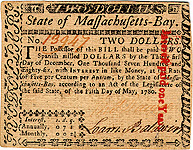And other rational people arrived at the opposite conclusion. Wouldn't it have been much better if the issue had been addressed at the Constitutional Convention rather than settled at the cost of over 600,000 dead Americans?
It took a certain amount of construction or "penumbras" to find such a "right."
IMHO, all it takes is a reading of the Tenth Amendment.
Is secession ever mentioned in the Constitution?
No.
Does the Tenth Amendment state, "“The powers not delegated to the United States by the Constitution, nor prohibited by it to the States, are reserved to the States respectively, or to the people"?
Yes.
If secession is not even addressed in the Constitution, why is it not a right "reserved to the States" in accordance with the Tenth Amendment?
I'm am not saying that secession was desirable.
I am saying that not specifically addressing the issue of possible secession in the future, as the proposed European Union Constitution does, was a monumental and extremely tragic error of omission on the part of the Framers of the U.S. Constitution.
Nobody's perfect. Not even the Founding Fathers.
Several New England politicians openly contemplated secession during the War of 1812 (when the New England economy was adversely impacted) and as a result of the Louisiana Purchase (which meant a future dilution of New England's political clout in the Union).
The modern day concept that the issue of secession is "settled law" did not exist prior to the bloodbath of 1861-65.
The Framers of the proposed European Union Constitution have learned from that mistake.
At the end of the Revolutionary War, Massachusetts, New Hampshire, Connecticut, Rhode Island, New York, New Jersey, Pennsylvania, Maryland, Delaware, Virginia, North Carolina, South Carolina, and Georgia were just as sovereign as any nation in the European Union is today. In 1844, the Republic of Texas was just as sovereign than any nation in the European Union is today. In 1860, Virginia meant as much to a Virginian as England means to an Englishman in 2006 or will in 2016.
The first sentence just isn't true. Those ex-colonies didn't have the history of sovereignty that European nations have had.
I never said "history of sovereignty". I said just plain "sovereignty". If the degree of sovereignty of a people is determined by how long they have been sovereign, most European nations could claim to be more "sovereign" than the U.S.
And they didn't take the time to develop the institutions that sovereign nations maintain. They took another path.
Americans, unlike what some Europeans may believe when they throw it in our face that America is a "young" nation, did not come from Mars in 1776.
The Americans of 1780 had every right to claim as their very own the history of every institution and tradition of self government that their British ancestors had ever produced. Following that long tradition, they had their own Constitutions, Legislatures, raised their own regiments and coined their own money. In other words, they functioned as sovereign states.
Constitution of Massachusetts 1780
Revolutionary War Regiments, Massachusetts

As a result, Article I of the Treaty of Paris states:
Note the phrase "free sovereign and independent states"........... Note the words "states" (plural) as opposed to "state" (singular). Note the word "sovereign". Note the word "independent".
Note the phrase "that he treats with them as such"............Note the word "them" (plural).
The Treaty of Paris, if it said what it meant and meant what it said, created New Hampshire, Massachusetts Bay, Rhode Island and Providence Plantations, Connecticut, New York, New Jersey, Pennsylvania, Maryland, Virginia, North Carolina, South Carolina and Georgia as "free sovereign and independent STATES (plural)" and his Britannic Majesty agreed to treat THEM as such.